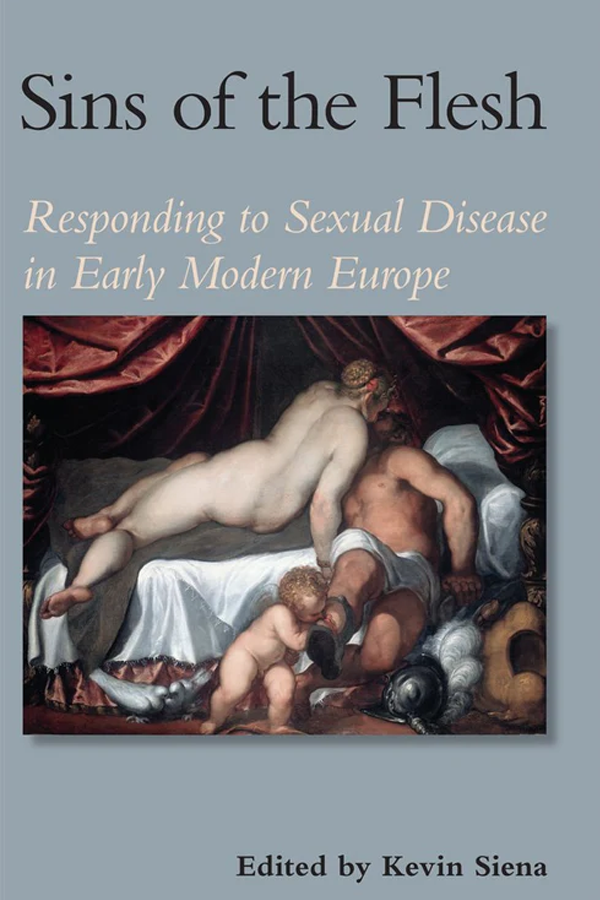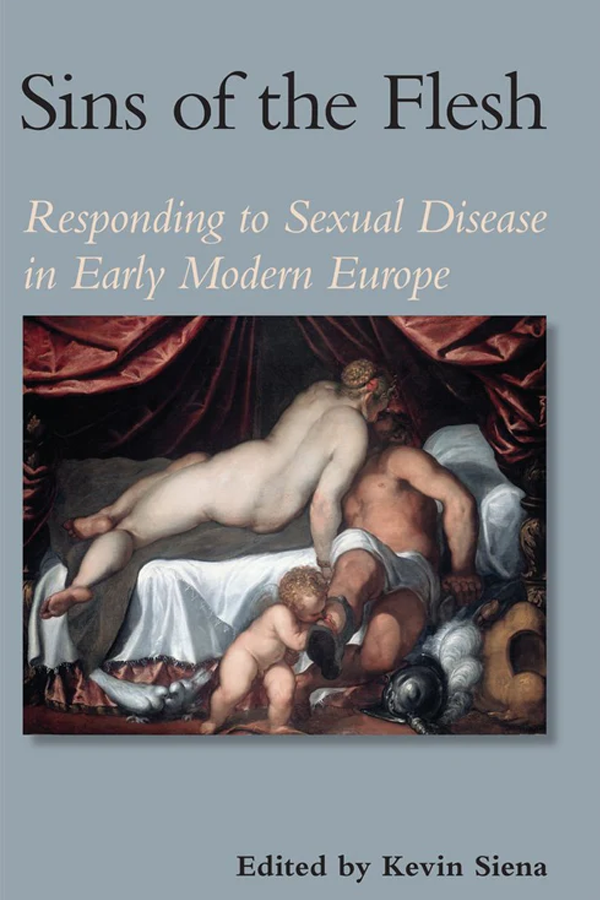Sins of the Flesh: Responding to Sexual Disease in Early Modern Europe
Edited by Kevin Siena - ES07
Overview
Few illnesses in the sixteenth and seventeenth centuries carried the impact of the dreaded “pox,” a lethal sexually transmitted disease usually thought to be syphilis. Often believed to have arisen in Europe during the 1490s, by the early sixteenth century the disease quickly emerged as a powerful cultural force. Just as powerful were the responses to this new disease by doctors, bureaucrats, moralists, playwrights, and satirists. These responses mark the subject of this collection.
The ten essays in this volume seek to gauge the impact of sexual disease on early modern society by exploring the rich variety of ways in which European culture reacted to the presence of a new deadly sexual infection. Articles about Europe’s “Scientific and Medical Responses” analyze how physicians incorporated the disease within existing intellectual frameworks and chart the array of medical practitioners who took up the fight against it. Studies of “Literary and Metaphoric Responses” chronicle how early modern writers put images of sexual infection and the diseased body to a range of rhetorical uses and political purposes. Finally, essays about “Institutional and Policing Responses” chronicle how these public health responses linked up with wider campaigns to police sexuality.
Sins of the Flesh brings together an international collection of researchers to offer new insights about medicine, sexuality, institutionalization, gender, nation, and representation in the early modern world.
Kevin Siena is assistant professor of history at Trent University. He is the author of Venereal Disease, Hospitals and the Urban Poor: London’s “Foul Wards” 1600-1800 (2004).
292 pp.
ISBN: 978-0-7727-2029-0 softcover
Published: 2005
Contents
Kevin Siena, “Introduction"
I. Scientific and Medical Responses
1. John Arrizabalaga, “Medical Responses to the ‘French Disease’ in Europe at the Turn of the Sixteenth Century”
2. David Gentilcore, “Charlatans, the Regulated Marketplace and the Treatment of Venereal Disease in Italy”
3. Darin Hayton, “Joseph Grünpeck’s Astrological Explanation of the French Disease”
II. Literary and Metaphoric Responses
4. Jonathan Gil Harris, “(Po)X Marks the Spot: How to ‘Read’ ‘Early Modern’ ‘Syphilis’ in The Three Ladies of London“
5. Roze Hentschell, “Luxury and Lechery: Hunting the French Pox in Early Modern England”
6. Diane Cady, “Linguistic Dis-ease: Foreign Language as Sexual Disease in Early Modern England”
7. Domenico Zanrè, “French Diseases and Italian Responses: Representations of the mal francese in the Literature of Cinquecento Tuscany”
III. Institutional and Policing Responses
8. Laura J. McGough, “Quarantining Beauty: The French Disease in Early Modern Venice”
9. Mary Hewlett, “The French Connection: Syphilis and Sodomy in Late-Renaissance Lucca”
10. Kevin Siena, “The Clean and the Foul: Paupers and the Pox in London Hospitals, c.1550-c.1700”
Praise
“The collection employs a variety of disciplinary and methodological approaches to explore how “the pox” was interpreted and understood within different national and social contexts throughout early modern Europe... The disease as a cultural construct, not as a measurable/objective ailment, presents an intriguing promise for future study within other national context.”
— Erik Lizee, University of Alberta
Reviews
Canadian Bulletin of Medical History, 25:1 (Spring 2008), pp. 279-280. Reviewed by Erik Lizee.
Couldn't load pickup availability


